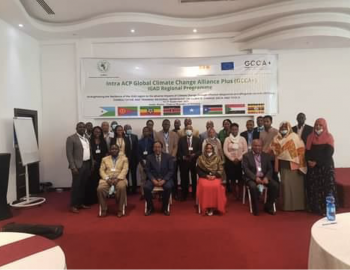OUTLOOK: Indonesia Special Edition
OUTLOOK: Indonesia Special Edition
Indonesia is experiencing economic transformation, with high rates of economic growth. However, this is coupled with extensive deforestation and land use change; and economic growth brings increasing demand for energy and transport systems. The government recognises that de-coupling continued economic growth from greenhouse gas emissions is important to combat climate change, and has committed to reduce emissions by 29% by its own efforts, and up to 41% with international support, against the business as usual scenario by 2030.
To meet these targets, the government has put in place relevant legal and policy instruments, including the national action plan on greenhouse gas emission reduction and a moratorium on the clearing of primary forests and peatlands.
This Climate and Development Outlook: Indonesia Special Edition reports on the programme support that CDKN has provided to the national, provincial and district governments of Indonesia. CDKN has – according to programme manager Fareeha Irfan Ovais – “supported decision-makers to test and explore the concept of climate compatible development, particularly in the energy sector, by providing technical assistance and knowledge and brokering support for a variety of climate change initiatives.”
The chance for “quick wins” in climate compatible development is increased, particularly, at the subnational level, says Mochamad Indrawan, CDKN’s Senior Strategic Advisor in Indonesia. He outlines how CDKN, the Institute for Essential Services Reform and Yayasan Pikul together worked with the authorities of West and East Nusa Tenggara provinces and the City of Kupang to mainstream climate adaptation and mitigation approaches into medium-term development planning and to assess how the twin goals of energy security and climate mitigation could be pursued in tandem.
The Outlook also reports on the achievements of the CDKN programme and its partners in:
- Developing a Common Accounting Framework for Energy;
- Developing a Nationally Appropriate Mitigation Action (NAMA) in Indonesia’s energy sector – for more efficient industrial motors;
- Supporting the enhanced capability of the Indonesia Climate Change Trust Fund (ICCTF) to access international sources of climate finance;
- Applying a ‘Water-Energy-Food Security’ nexus approach to natural resource governance challenges in Aceh, to come up with recommendations for reducing pressure on natural forests while retaining agriculture production.
The strategic contribution of CDKN’s programme to ‘climate compatible development’ thinking in Indonesia is recognised by many government officials, including Medrilzam, Head of Environment at the Ministry of Planning, BAPPENAS, who said: “now we understand better how to manage a national trust fund.”



